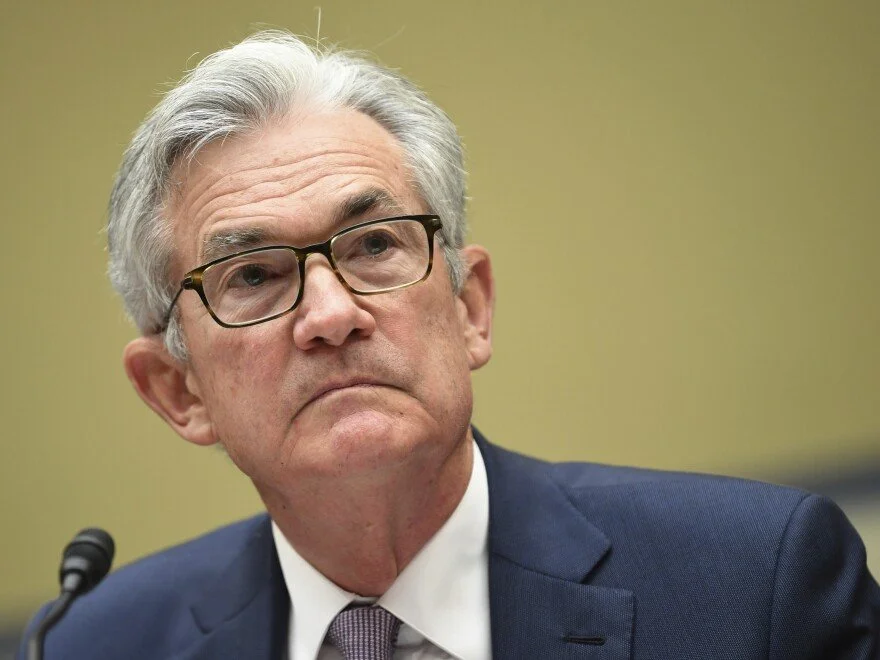FED Introduces New Rules to Combat Unethical Trading, Congress Should Be Next.
FED Chairman Jerome Powell. Source: WSHU
On September 27th, two senior officials at the Federal Reserve announced that they would be retiring early. Early retirement of these officials is not necessarily newsworthy but the circumstances surrounding their retirements are. Dallas Federal Reserve Bank President Robert Kaplan and Boston Reserve Bank President Eric Rosengren have stepped aside amid accusations of unethical securities trading.
Rosengren stated the retirement comes due to personal health concerns while Kaplan addressed concerns over trades he had made. According to Kaplan’s 2020 public investment disclosure form, he made 27 trades worth over one million dollars in stocks, bonds, and other asset holdings. On the other hand, Rosengren bought and sold shares of real estate investment trusts (REITs) while sitting on the Federal Open Market Committee (FOMC). The FOMC advises and decides actions that alter market conditions by affecting money supply. In short, these disclosures are noteworthy as these men play a role in guiding policy that directly affected the industries for which they made trades.
For example, Kaplan made million-dollar trades in the oil and gas industry. That industry was the beneficiary of FED policy. Rosengren, on the other hand, possibly benefited from his position in a different way. He has been publicly critical of monetary stimulus in regards to the real estate market. Still, Rosengren had direct investments in real estate by trading in REITs. It turns out that REITs returns are positively correlated with FED interest rates. Thus, REIT returns are greater when interest rates are larger. It's not too difficult to see why eyebrows were raised.
Both have made statements saying their trade activity complied with the Reserve’s ethics rules. Nevertheless, the appearance of corruption can create a severe perception issue for the FED. Conscientious of the importance of public trust, Reserve Chairman Jerome Powell announced ethics rules would be strengthened. To his credit, the FED moved to do just that.
In an October 21st press release, new rules for policymaking personnel and senior staff were revealed. In short, the new rules include a prohibition of individual stock purchases, holding individual bonds, and more. Additionally, those at the top of the FED will also be required to provide 45-day advance notice for security sale or purchase, obtain prior approval for security sales or purchases, and hold investments for at least one year.
The guidelines were made so an “insider trading” scandal never happens again. Unelected persons lead the Federal Reserve so their legitimacy is tied to the public’s trust in it. That raises the question, if the FED can make stringent rules to combat insider trading, why is Congress not beholden to similar regulations?
Under the STOCK act, lawmakers are prohibited from trading on insider knowledge and are required to disclose stock transactions promptly. However, it does not prohibit the sale or purchase of individual stocks as the new FED rules have, and in 2020, congressional officeholder’s investments had better outcomes than market averages.
According to unusualwhales.com, a website that compiles unusual stock market activity and analyses lawmaker trades, Senators exhibited average stock returns of 30.9%, while House Representatives realized average returns of 33.8%. In 2020, the S&P 500 return was 18.4%. Congress Members essentially beat the market, and they outperform it significantly.
Questionable trades have happened on both sides of the aisle. On June 3rd, Nancy Pelosi’s (D-CA) husband bought between 1 and 5 million dollars worth of stock options in semiconductor producer NVIDIA. Five days later, the Senate approved billions of dollars to fund domestic semiconductor manufacturing. Infamously, North Carolina Senator Richard Burr (R-NC) dumped $1.7 million of stock in February 2020. Burr sat on a committee that was privately briefed about the risk of the virus before its outbreak in the U.S.
Whether trading on insider information or not, trades that appear to be corrupt undermine public trust in our policymaking bodies. In a time where only 24% of Americans say they trust the government to do what is right “most of the time,” Congress should move to bolster its image with the American people. It can start with taking actual, effective measures regarding security trading.

